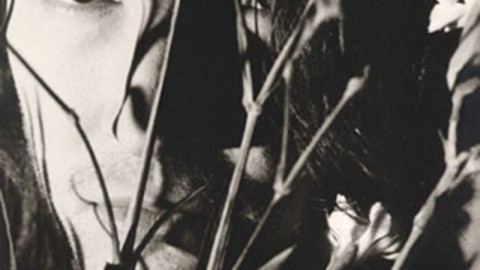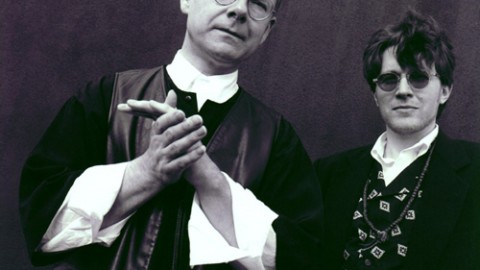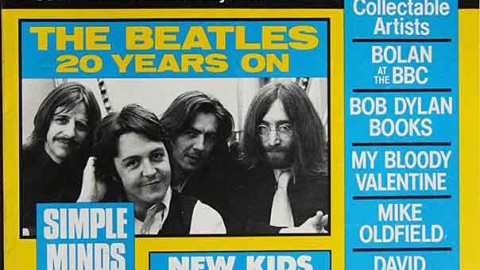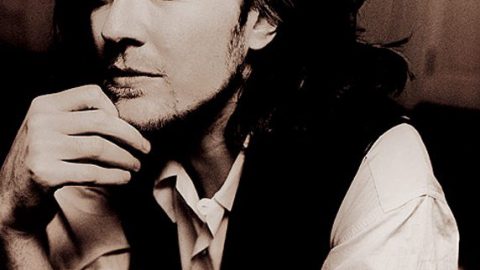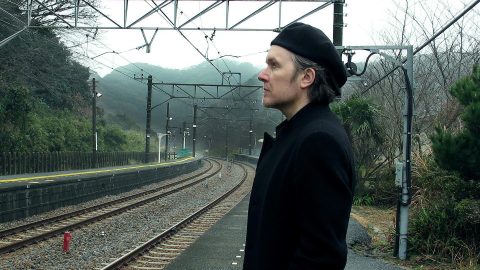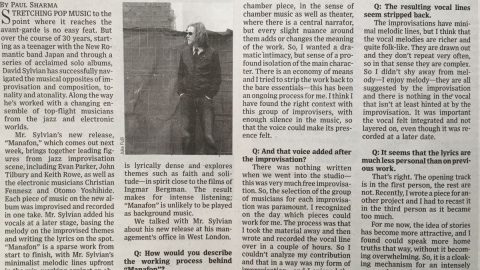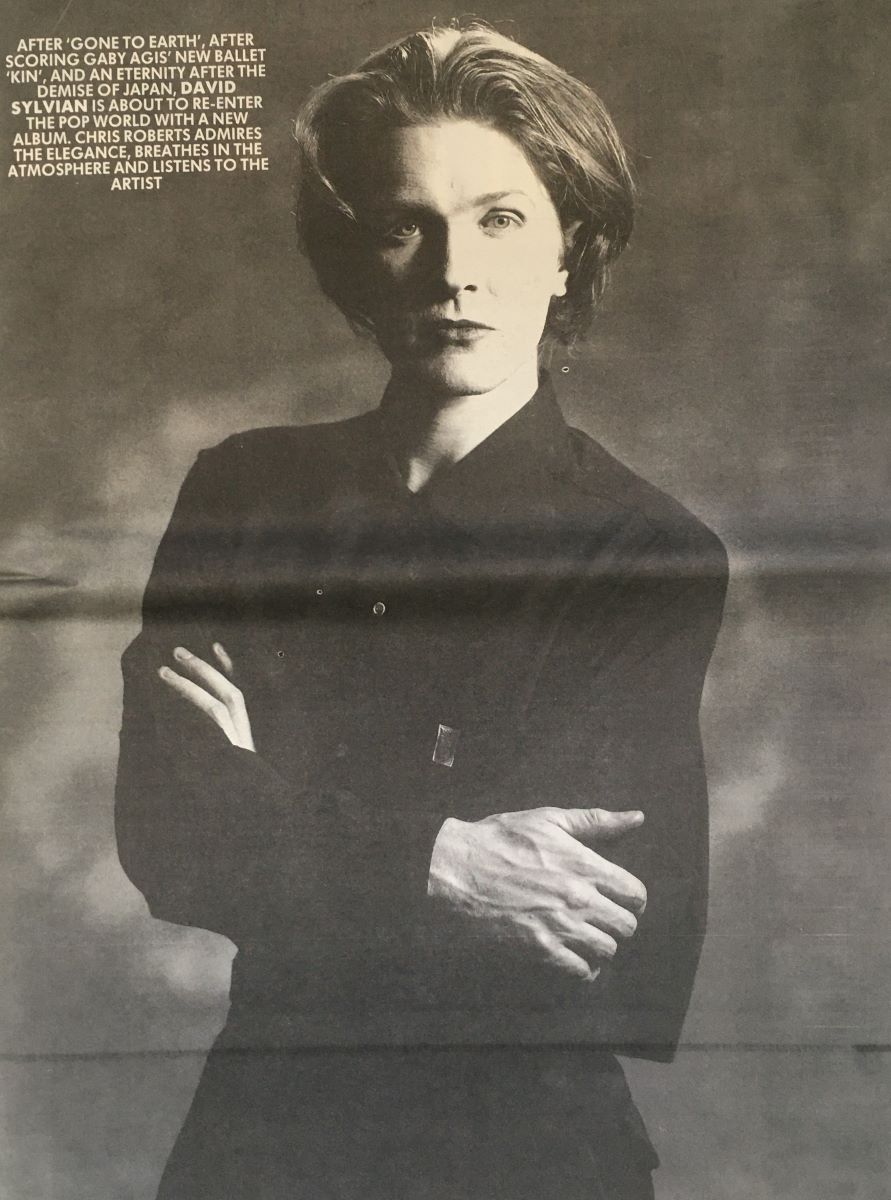
Silent Secrets
MELODY MAKER, September 26, 1987
AFTER ‘GONE TO EARTH’, AFTER SCORING GABY AGIS’ NEW BALLET ‘KIN’, AND AN ETERNITY AFTER THE DEMISE OF JAPAN, DAVID SYLVIAN IS ABOUT TO RE-ENTER THE POP WORLD WITH A NEW ALBUM. CHRIS ROBERTS ADMIRES THE ELEGANCE, BREATHES IN THE ATMOSPHERE AND LISTENS TO THE ARTIST
Another autumn. Languid but not spiritless, Sylvian still moves. Gliding a plane above it all. It must have taken years to learn to walk that well, but now it’s second nature. Then you hear these new songs again, and you think: he’s prepared to get his feet wet once more. That could be good news.
The room’s still quiet, but there are pictures of pop stars on the far wall. Nothing to do with us. We’re just talking, while leaves fall from streetlamps. My word is “Assimilate?”
“Yes, I’d say that was basically it. That’s all my life is geared towards: understanding what I’ve experienced in the hope that it’ll lift me a step higher towards understanding myself and the world around me.”
Sylvian has killed off Sylvian so convincingly that now Sylvian can write songs again without fear of people saying he’s just Sylvian. Sylvian has denied his physical beauty for so long that we have to believe it’s all as cerebral — or spiritual — as he says. Think of the way he could have gone, along pop’s M1, the Me Me Me One. He hasn’t. Thought of it. Even. The only bit of “charlatan” he can spell now is “art”.
Every time you broach the past, Japan, that elegance that elegaic style, he looks at a point just above your left shoulder and tolerates. Like adolescent poetry, he knows he can’t pretend he never did it but he doesn’t have to say then was good when now is transcendent. Anything but nostalgia.
I wouldn’t be able to relax over a lager and watch a football game with Sylvian but he has more dignity and self-respect than anyone in the whirl. If image is all about highlighting one human characteristic and shielding the star’s other real dimensions from public view, Sylvian left one glacial photograph years ago which has since curled to sepia. Sylvian is Louise Brooks or the original “Catpeople”- to the Eighties’ Samantha Foxes and Terry Butchers.
Boys still get awkward about a fondness for Sylvian. In public it’s a safer bet to say you like Prince. Prince, after all, shags rich girds in telephone booths. Cool intelligence and reflective juxtaposition seem somewhat fey compared to this. But what attracted you to pop’s mayhem originally was not just sex and volume. There was a hint that something in there, something lurking hesitantly in the bushes on a stormy night, might think like you thought. Not like they thought. Something which embraced both long legs and longer faces, narcissism and novellas. Sylvian was, for some of us, a patron saint. His self-imposed exile from the centre circle (circle: one route, never-changing, limited) has preserved his stature superbly, the deft doubt and serenity of “Brilliant Trees” and the underrated “Gone to Earth” hovering over daily motion like fireflies, like a hushed sense of well-being.
“Secrets Of The Beehive” brings Paris and The Sphinx back into your living room, and suddenly you know why you always kept an illusion of space next to the television set. This music — and I have heard it— is the grin of life distilled from the grind. This music is hope.
Longish dark hair now, with a pony tail, glasses. Like what? Like a dodgy young English film director? Like it doesn’t matter because he’s preaching pensive and passive? Like, you take his point.
“l tend to grow further and further away from everything Japan represented. I don’t…I relate to that period of my life less and less as time goes on, which is only natural. I haven’t had time to recap, that’s the thing. Constantly working, there isn’t that luxury of taking in new information. I mean, I haven’t read a great deal since I last saw you. I haven’t travelled much. Although — Australia. There were aspects of that — wonderful moments when I was on my own in this wonderful landscape and so on, and I managed to have some greatly rewarding experiences. Which is probably why this new material surfaced anyway.
“But even now I haven’t had time to understand those. I know they were rewarding, I know they lifted me, inspired me, but I haven’t come to understand them intellectually…”
If you were a horse, or a chihuahua, you never would…
“It would be great if everything was as instinctive as animals, if you didn’t have to explain it. To latch onto things intellectually sometimes interferes with the purity of the emotions.
“If you don’t know the names of certain trees and plants in nature you can enjoy it a great deal more. Once you can pin down the names of everything, it takes on a different meaning, you respond differently. You mingle the instinctive and the intellectual.
“I find the intellect gets in the way in my work. I know when I write that if I’ve interfered with the process it won’t turn out as well as it could’ve done. Sometimes you have to. It’s not an ideal world.”
It’s not an ideal world.
“Pieces don’t always work out. You have to help them. But this whole album was written instinctively; it wasn’t premeditated in any way. For the first time each track was written in one sitting. Usually I carry them around for months. So it’s totally new for me. And it’s a wonderful feeling, because I know it didn’t come from me.”
A half-smile. Fortunately I’m tired, tranquil. “It came through you?” I hazard.
“It came through me, yeah.”
I said the right thing.
‘You just happen to be a good receptor at that time. Totally receptive to the…to the mood. And able to interpret it in the correct way.”
So these experiences in Australia. Them. What was the best one?
“Well — those are so subjective that if I tell you where I was and so on it’d give you nothing to write about. Because it’s an inner experience which can’t be put into words. It was just an uplifting moment.”
Try me. Visual?
“It is seeing something, but it’s…feeling something.”
I’m still here. And I’m still not calling you “David”.
“Ah…this happened in a place in Australia called The Blue Mountains, which is an incredibly beautiful landscape. It was just being alone in that landscape. I can’t say any more than that. There was a moment there that I…learned something about myself. I just felt something very very powerful…those things stay with you for a long time. And you constantly go back to them to revitalise you in some way. I don’t have those experiences that often, so I think whenever you do you have to recognise their importance.”
And treasure them?
“Mmm. A lot of the descriptions of place and so on that appear in the new songs come directly out of that. If I was affected profoundly by a Iandscape, that landscape would now represent a state of mind for me. ‘Happiness’? My image of that is when I was sitting on this harbour… “
“Happiness” is the new Sylvian single. It shimmers like the snakes in Medusa’s air (Medusa played by Isabelle Adjani). Delicately building on two forlorn notes (all you need — one to say hello and one to say goodbye) into a seaspray of reaffirmation, it’s the most ecstatically melancholy one-off he’s achieved since “Ghosts”. (Two perfect singles in a career is all you need. One to say hello and one to say yes.) Stonier hearts than mine will be turned to floods by “Happiness”.
Among the everything it says is “I’m waiting for the agony to stop, and let the happiness in”. I. ay something to Sylvian I’ve wanted to say for a long time. I say: “Agony is a very strong word, David.”
“Yes.”
Do you have much? Agony?
“Yes. I think so.”
You lovely man.
“l think a lot of people do.” Oh I know, I know, I know, its alright. I’m just stretching my neck like this because you said yes. That’s so brilliant.
“It’s…probably a word I’d normally avoid because I thought it was too…dramatic. But in the context I thought l could get away with it. Because…the mood of the music, is very descriptive. I think it must be an experience we all know, we’re all familiar with. And because it moves on to that kind of uplifting ending, it’s not like it’s leaving you on a sour note. It’s bringing you through that experience, lifting you out of it. And if you can do that through music, you can do it in your life.
“If it doesn’t work then I’d think I’d failed. But that for me is an example of a piece that works. Because I’m always frustrated; I go through a period of mild depression every time finish a record, thinking I haven’t put across what I set out to. It’s always the same. My ideals are constantly rising while my ability to reach them comes down.”
But you get to go “doo doo doo” this time! Radically undisciplined for you….
“Ha! Hmm. Yes. Perhaps because the lyrics have a higher profile this time, so do the vocals. The success of this record in artistic terms relies totally on basic composition, on the vocal and lyrical content.”
Because Sylvian has discovered words. Nuance has given right of way to narrative on “Secrets Of The Beehive”, his comparatively ephemeral new album, out (complete with 23 Envelope sleeve design) in October. More than ever before he’s using stories, characters and events, as scaffolding for the poetic introspection. “Happiness” could well be “a hit“, but “it doesn’t really…matter. It’s not something I’m worried about. I’ve no idea.”
“The Boy With The Gun” and “Orpheus” are “allegories”, but ‘When Poets Dream Of Angels” includes such ruddy earthiness as “bruises inflicted in moments of fury” and “next time I’ll break every bone in your body”.
And then in “On The Waterfront”, there’s (deep breath):
“So the world shrinks drop by drop
As the wine goes to your head
Swollen angels point and laugh —
This time your god is dead.
Is our love strong enough?””
There’s more of a willingness to come to terms with the unpleasant, unpretty, sides of human nature. The vicious, the brutal. Even a couple of references to devil worship.
“Yes. The thing that runs throughout is — light within the darkness. So even in the darkest moments you can rise above circumstance. In “When Poets Dream” each couple of lines deals with an isolated act of violence or an unwillingness to recognise evil in the world. But at the same time it’s showing there’s always a way out. Living in the city isn’t easy, but you can find yourself within yourself, and cope. Start in a subdued way and finally rise.”
Tell you what. You couldn’t release ‘The Boy With The Gun” (a finely evocative tale of a gleeful psychopath summoning up the devil and measuring out justice) as a single. Not after Hungerford.
“Hmm. That’s a point. I just tried to make the lyrics more accessible to people, so they weren’t alienated. But that one’s allegorical, I’m not sure I want to explain it.
The Catalans are a strange and furious breed aren’t they? (Flamenco flirts with fusion hereabouts.)
“Mmm. There are some references to the passionate temperament.”
Is “On The Waterfront” anything to do with the film?
“I’ve never seen the film. Sorry.”
He’s telling the truth. I tell him the gist of it.
“Uh-huh? Oh, that one. I haven’t seen it, but…yeah. I’m sorry, my mind is so immersed in this ballet…”
“This ballet” is Gaby Agis’ modern dance spell “Kin”, recently premiered at The Almeida Theatre, London, with music by one David Sylvian. A stirring work, about which I have enthused, it gave Sylvian the chance to pursue the instrumental atmospheric ideas which took second place to The Return Of The Voice on this record.
I’d recently become more interested in dance, been to see a few different shows at Sadler’s Wells. She contacted me. I liked the idea of working with a choreographer more than say doing a soundtrack for a film. Because music and dance are both very abstract forms. Sensual, fluid. It didn’t have to be rhythmic but…humane, hypnotic. I like the idea of drawing people into a frame of mind then letting them go within that realm, the realm of their own imagination. It’s always frustrated me that you couldn’t achieve that with a live musical performance.”
Nevertheless, I must remind the commerce-spurning one – lyrics like the previously quoted from “On The Waterfront” can’t be taken lightly.
“Again it’s to do with the positive and negative influences on your life. The things you’re confronted with. The way personal beliefs come and go, can be built up and destroyed by one instance. It’s: Do you have a strong enough faith within you to cope with the obstacles and barriers?”
Optimism through adversity again?
“Well…that one is more of a question! This one isn’t as meditative as ‘Gone To Earth’, it has more to do with everyday life in the hope that people will respond. I knew the path I’d been pursuing since “Brilliant Trees” had been exhausted. It’d come to a conclusion of some kind or another. I knew had to do the next thing. I didn’t know it would be this.”
“Secrets of Beehive” features long-time friend and collaborator Ryuichi Sakamoto again (“Roo is the best interpreter of my ideas”), and Sylvian’s brother Steve Jansen. (“I don’t want to answer questions about The Dolphin Brothers. They get tired of answering them about me, and it’s vice versa. So maybe we could leave that.”) Only slightly daunted, I ask if there was any record company pressure to do something a mite more “instant?”
“No. This was a choice…”
Sylvian is as calm as you like – again you know he means it – and then there’s a sense he’s searching for exactly the right words, so as to leave no doubt.
“I hope I’ve never given the impression that I’m trying to remove myself from popular music. Cos I’m not. I love it. I love that. I think there’s great value in popular music. Sometimes I want to work in that field and sometimes I want to explore something a little more abstract. It’s just a choice. I’d never run pop down, I’d only say that I can’t find too much of value in it myself at the moment, but that’s not to say others don’t. The people that I do enjoy— Robert Wyatt, Tom Waits – write the kind of songs I can respond to…
There was talk you recorded an album with Holger Czukay…
“I’m not sure what’s happening with that myself! It was finished. It was going to be released about…about now, I think, but there’ve been contractual problems. I’m not sure. Yes, I like the music a great deal, but I’m not convinced the quality of the recording is right. Is it odd? Ha! Unconventional, maybe. Holger works in a technically ‘wrong’ way; that’s what makes it exciting. It becomes a new way of expressing through music. People learn from people like Holger who break the rules.
“Secrets Of The Beehive” will be a pop record, sort of, but immaculate, and shaming the rest. That there could be so much in it! Revelations!
“The beehive, in many societies through the age has represented the ideal family or group. And a kind of spiritual hierarchy. A lot of my songs have to do with a desire for acceptance, a desire to belong, while at the same time there’s always this sense of isolation, of not being able to belong. The ideal society can exist, but it has to be based on universal laws. In some way that’s why I feel my isolation. I’m an anti-social person because I can’t respond to the society I live in.”
Isn’t that because you’re more acutely aware of it than most? The stimuli you take in aren’t generally “EastEnders” and The Star, are they? You see yourself as “the artist”, surely?
“Artists are — possibly more sensitive to their environment, they have a more idealised view, because they’re using senses which the average person doesn’t use day to day. So maybe they’re less complacent about life in general. Any artist, good or bad, is trying to exert some kind of influence on world around him. In a positive way. The fact that the work doesn’t come from them but through them means it’s not a personal opinion they’re trying to exert, it’s a universal truth.”
It’s mooted that this most delicious and justifiably earnest of artists will undertake something resembling a world tour early next year. This would be the first time Sylvian had graced (the only word) the stage since way back when ghosts were ghosts.
“There’s talk of it. For once I’ve actually started talking to musicians about it. Good responses so far. Last year I said to you that writing came first. I think now it’d be very very healthy for me to spend some time outside the studio. The more I think about it the more I think it’d do me a lot of good. It’d provoke me. It’d add some danger to the process, some element of risk. I need that more than I sometimes realise.”
What role will you play? Sit-down pianist? Stand up poseur?
“Ha! I think…I think I’ll go through all the motions…!”
And a wry controlled laugh. With a gift this rich, who needs light relief? Sylvian’s re-emergence with song will see him affecting the core again, sprinkling a dash of magic and emotional realism over the glib proletarian proceedings, infusing a jolt of soul and culture to the vultures’ vapid visnomie. You can smirk at it, which is easy, or flow upwards with it, which is gentle. I know where my seagulls are headed
Medicine for the popular complaint.
“l know I want to know more.”

